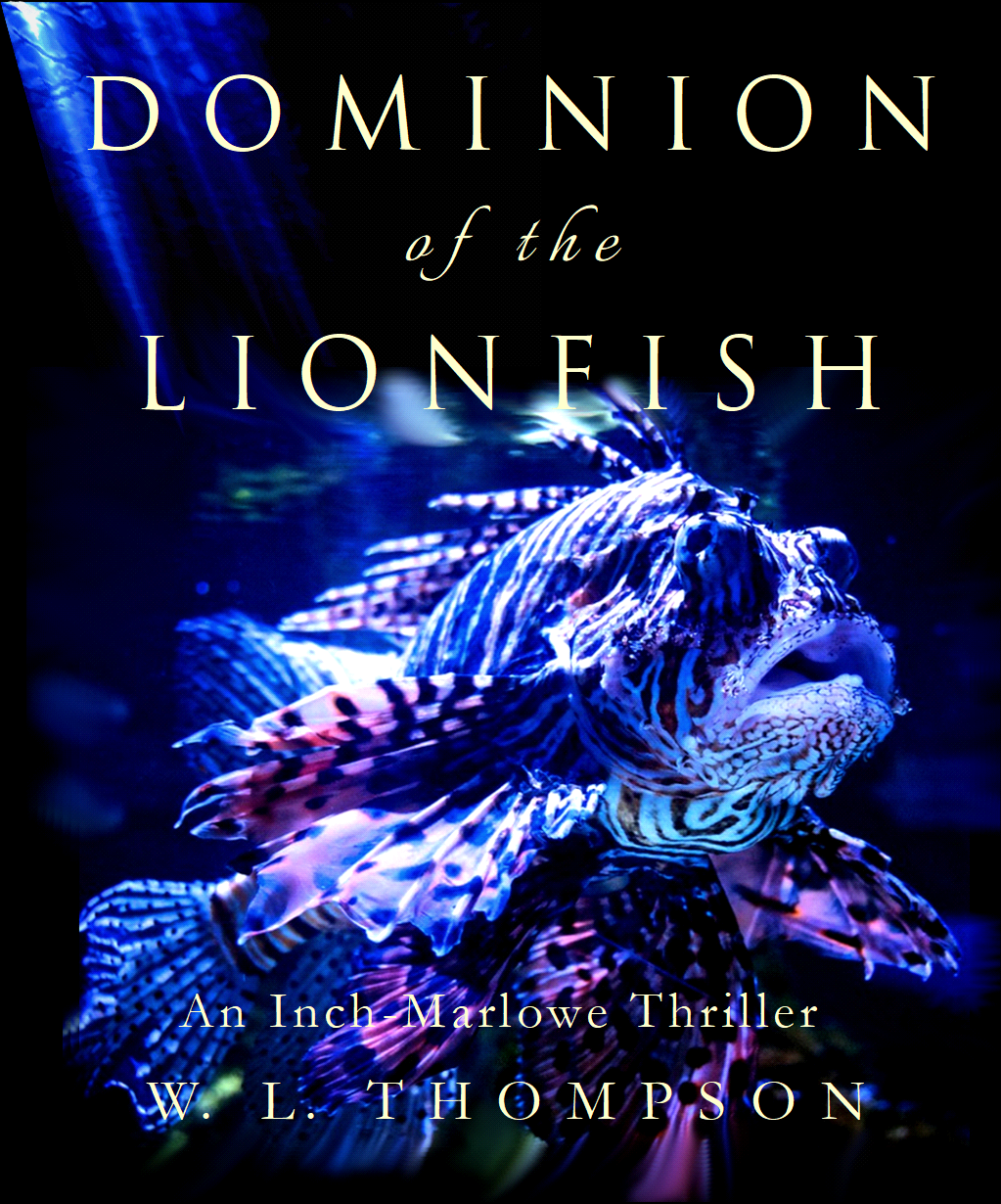AUTHOR
W. L. Thompson
Dominion of the Lionfish is a political thriller that is composed of strong elements from romance, mystery, and suspense. The characters are Barbadian, Saint Lucian, American, Canadian, and British. The protagonists are Peter Inch-Marlowe, a police inspector and his deputy Sergeant Sebastian Brickhouse. Inch-Marlowe, because of his ties to the United States, serves as liaison with the law enforcement agencies at the U.S. Embassy, in the weakening fight against an international drug trade, whose drugs proceed from China and South America and whose routes run through the Windward Islands and on to North America and Europe. Dominion of the Lionfish is, in many respects, autobiographical. As a United States Foreign Service officer, I spent three years at U.S. Embassy Bridgetown, at the setting of the novel itself. Two years into my tour, the Embassy’s Regional Security Officer was found dead on a white-sand beach, shot through the head. His death haunted the Embassy. At first, we believed he had been murdered by one of the drug cartels, but it proved a suicide in the end. The RSO was a friend of mine, and his loss became the seed that would germinate into Dominion of the Lionfish.

W.L. Thompson

During my tour in Barbados, I sailed in the annual Round Barbados yacht race and took up sailing seriously in the years that followed. As it turned out, that Round Barbados race provided the real-life ambiance and detail to the opening sailing event in Dominion of the Lionfish, a competition among thoroughbred racing yachts set in high wind and heavy seas that would see the death (read: murder) of the beautiful and exuberant wife of the Deputy Head of the Drug Enforcement at the U.S. Embassy. She falls from the masthead of the sleek and menacing Gladius and disappears into the wind-driven surf. Inch-Marlowe and Brickhouse discover her body on Cattlewash Beach, and immediately, the Embassy blocks any investigation, aggressively asserting diplomatic immunity under the Vienna Convention. For the Inspector, suspicions abound. Three years earlier, another American diplomat had been found on a Bajun white-sand beach, dead from a gunshot to the head. Defying the Constabulary, the U.S. Embassy combatively sought protection under the Vienna Convention, guarding the body and returning it to the United States. Inch-Marlowe saw his investigation summarily quashed. Now the Embassy again insists on sovereign immunity even though certain Embassy officials know who killed Carrie McEwen in the Round Barbados and who killed the Embassy’s Regional Security Officer three years earlier. Naturally, these deaths are intertwined and comprise the underlying mystery of the novel. Determined to discover the link between the deaths, Inch-Marlowe finds his efforts obstructed by the Embassy’s Chargé d’Affaires, who stands committed to protecting his own ambassadorial prospects.
In the figure of Inch-Marlowe, I made use of my years as an aircraft pilot to describe the various flights, near-mishaps, and ultimate crash of his beloved yet aging Cherokee 180C (see below!). In addition, in detailing the rally-car race of Detective Sergeant Sebastian Brickhouse, I drew from technical experience gleaned as a journalist covering Formula One, IndyCar, and World Rally, writing in those long-ago days principally for Road & Track magazine. The central theme of the novel is decidedly political, and here my years of service in the State Department, both as an officer and a contractor, provide the reader with an insider’s understanding of the U.S. Government’s posture overseas.
The characteristic attitudes, priorities, and ambitions of diplomatic officers in the field are amply demonstrated in the figures of the Charge d’Affairs, OIG Inspector, CIA and DEA chiefs, and other employees of the embassy. My aim has been to present these characters as well-rounded figures, and to illustrate not only their ambitions, but also the intelligence and charm that so many possess, as well as the camaraderie of the group as a whole.
No plot set in the Caribbean would be true-to-life without delving into the insidious drug trade that is decimating not only the islands, but also the United States. The controlling metaphor of the novel is, of course, the Lionfish. Lionfish are invasive, exotic-looking creatures with no natural predators in the dazzling coral reefs off the Caribbean islands. Multiplying in stupendous numbers, they are driving the indigenous fish to extinction — even as new, inexpensive, and highly lethal drugs, fentanyl and carfentanil, are being mixed with traditional cocaine and sold to young people. No longer do we have a Pablo Escobar making himself vastly rich. The war here is “policy by other means,” a strategic initiative that bleeds countries dry and costs some 12 million deaths a year worldwide. Behind the narrative itself, Dominion of the Lionfish presents commentary on government bureaucracies, exploring why their controlling officials serve their own narrow interests, suggesting why even the best bureaucracies so often stun the public by failing to discharge what is accepted as their very reason for being. In summary, the novel has as its goal to foster an understanding of what our Hemisphere is confronting in the “war on drugs” and to illustrate why we have been losing that war. It delves into the heroism of individuals who take a stand against the forces of evil in the battle. It uses a murder-mystery or whodunit plot as a background against which the larger drama devolves. And finally, it employs both humor and dialogue to provide entertainment and relief from the horrifying underlying themes.
A few key points
- Utilized aviation experience to depict Inch-Marlowe's flights and crash in a Cherokee 180C.
- Leveraged motorsports journalism background to detail Detective Sergeant Sebastian Brickhouse's rally-car race.
- Employed State Department insights for a nuanced portrayal of U.S. Government's international stance.
- Illustrated embassy life through the diverse, well-rounded characters of diplomatic staff, highlighting their intelligence, charm, and camaraderie.
Inspector Inch-Marlowe's plane ... before the crash
